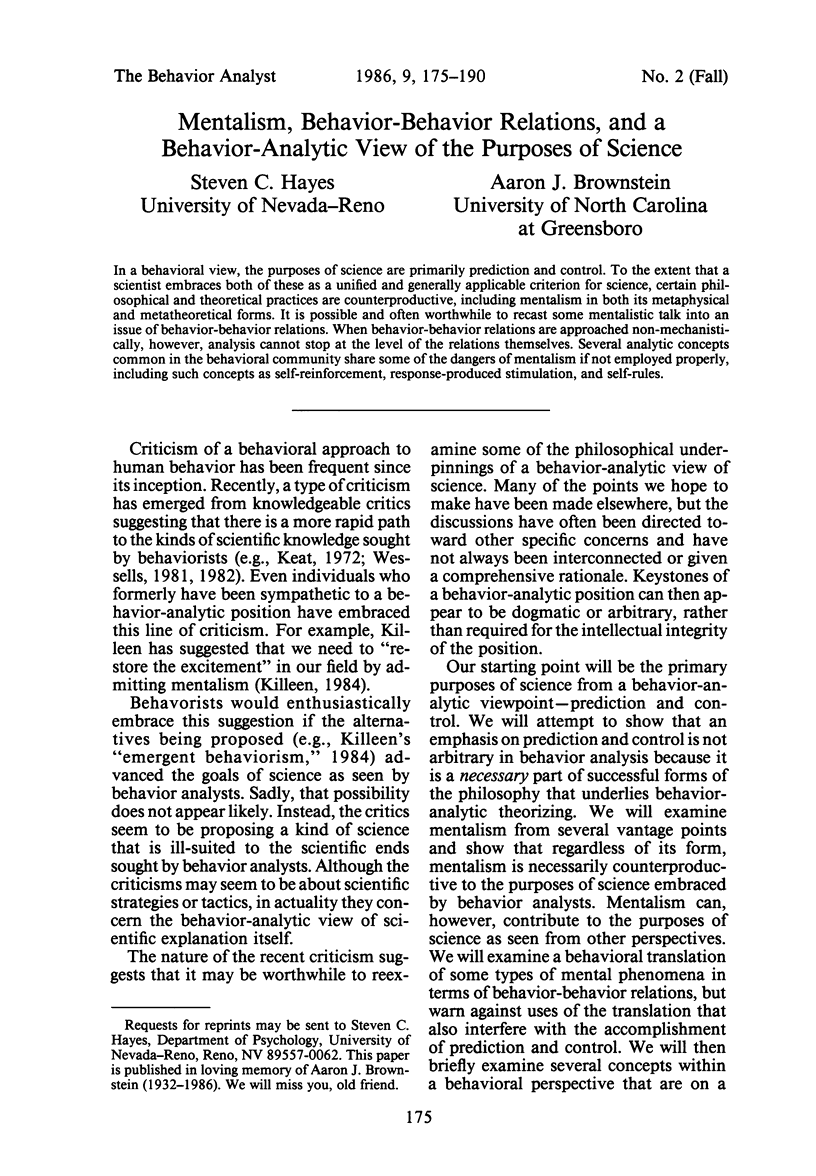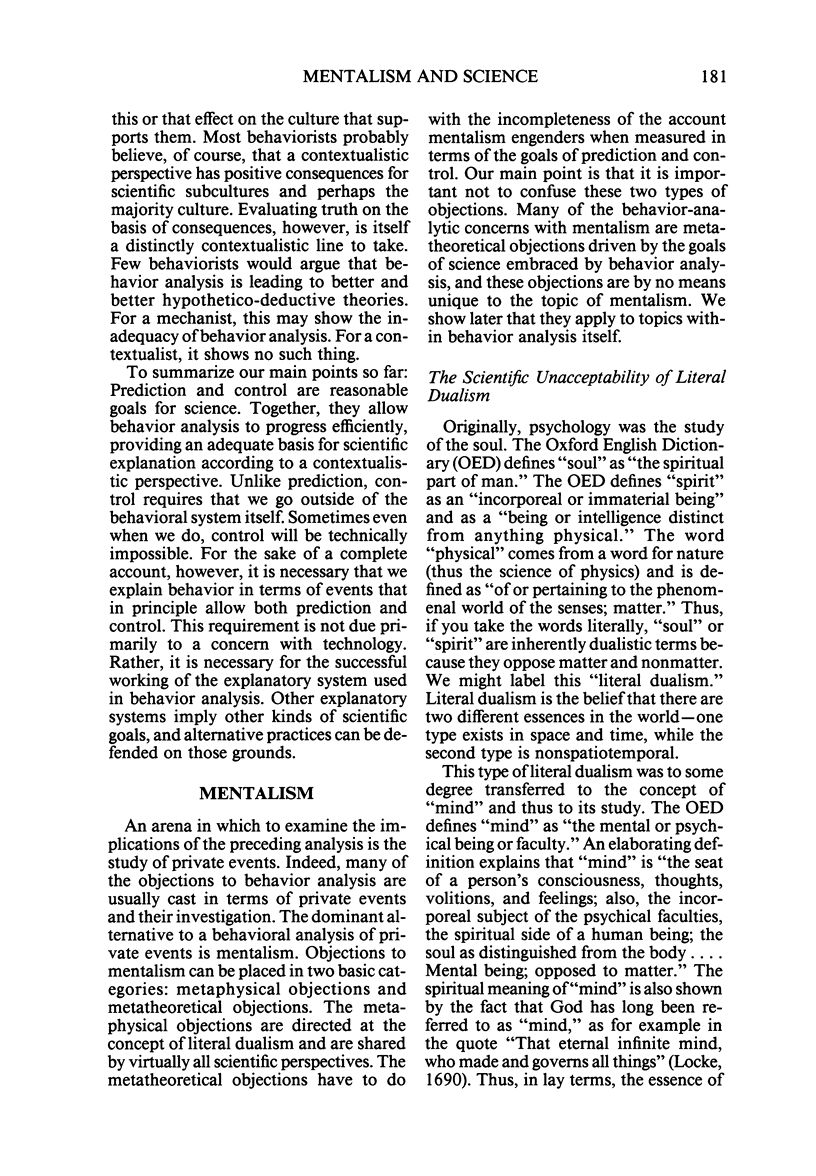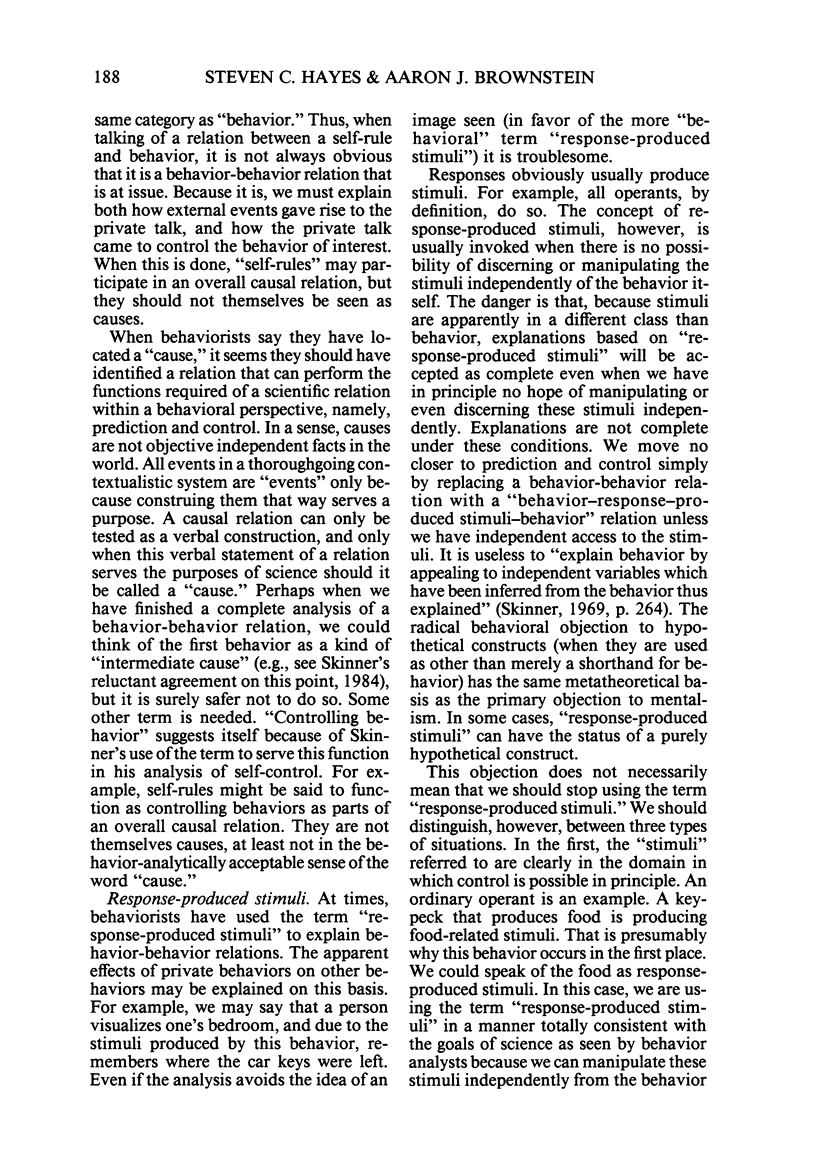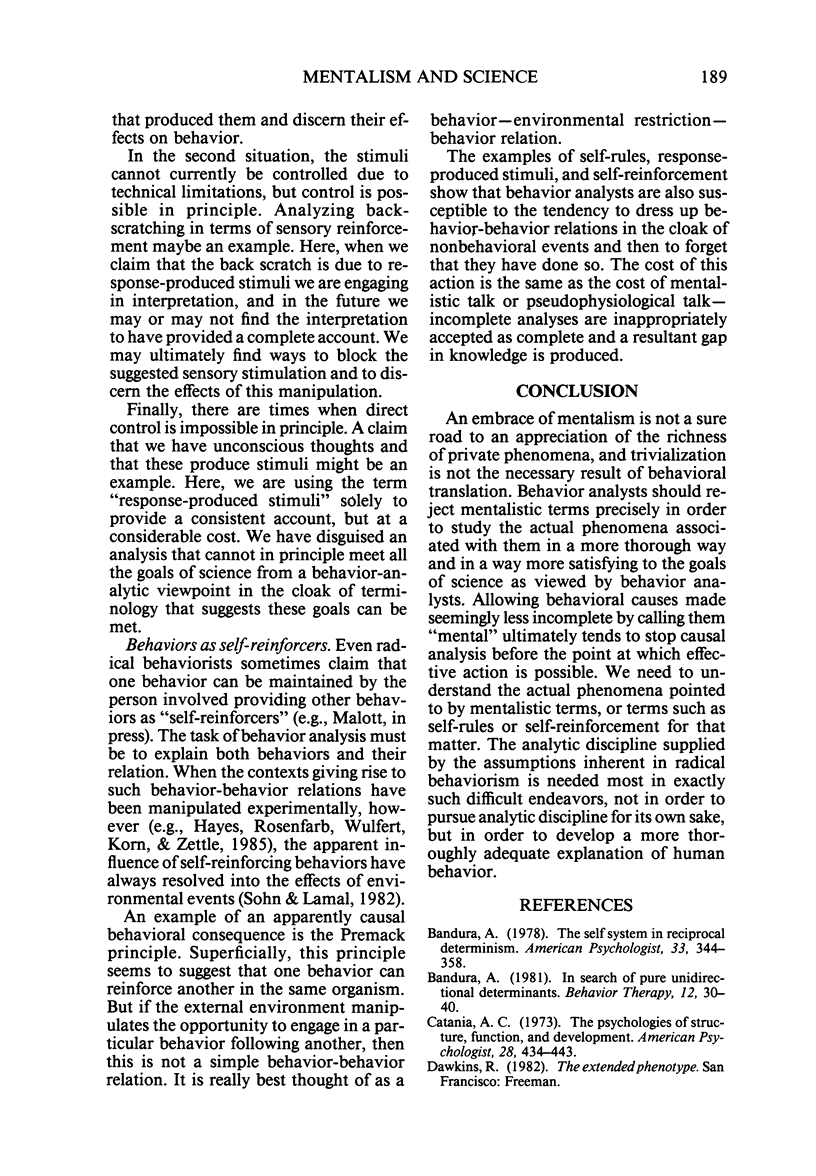Abstract
In a behavioral view, the purposes of science are primarily prediction and control. To the extent that a scientist embraces both of these as a unified and generally applicable criterion for science, certain philosophical and theoretical practices are counterproductive, including mentalism in both its metaphysical and metatheoretical forms. It is possible and often worthwhile to recast some mentalistic talk into an issue of behavior-behavior relations. When behavior-behavior relations are approached non-mechanistically, however, analysis cannot stop at the level of the relations themselves. Several analytic concepts common in the behavioral community share some of the dangers of mentalism if not employed properly, including such concepts as self-reinforcement, response-produced stimulation, and self-rules.
Full text
PDF















Selected References
These references are in PubMed. This may not be the complete list of references from this article.
- Hayes S. C., Rosenfarb I., Wulfert E., Munt E. D., Korn Z., Zettle R. D. Self-reinforcement effects: An artifact of social standard setting? J Appl Behav Anal. 1985 Fall;18(3):201–214. doi: 10.1901/jaba.1985.18-201. [DOI] [PMC free article] [PubMed] [Google Scholar]
- doi: 10.1901/jeab.1986.45-351. [DOI] [PMC free article] [Google Scholar]


